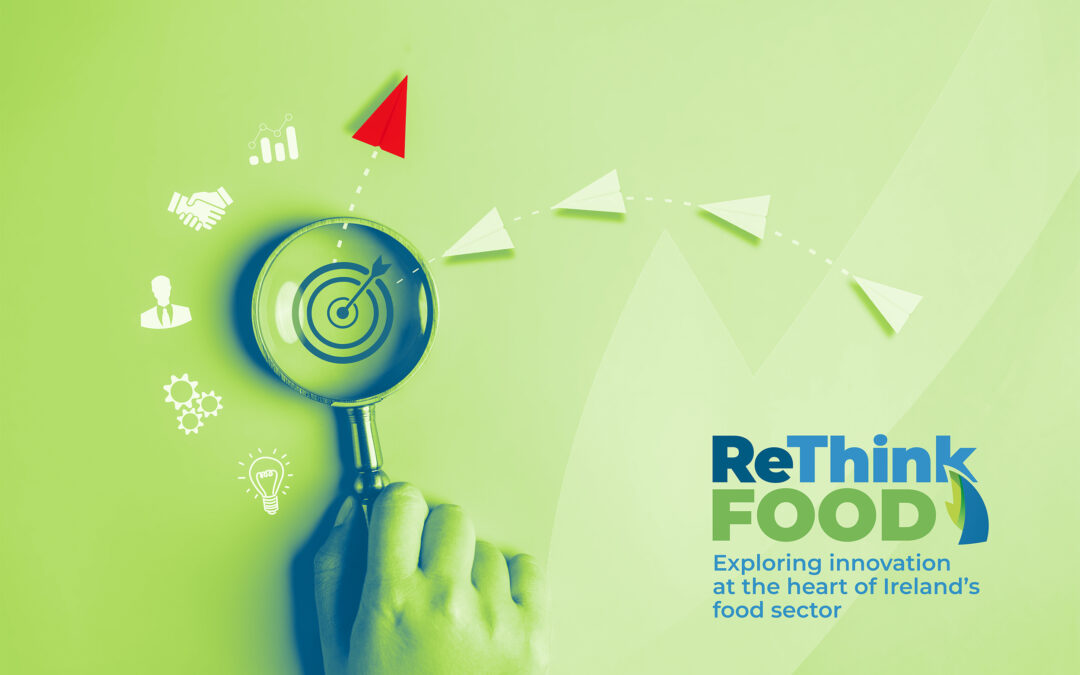Download Technology Centres Report 2020
Technology Centres played a pivotal role in Ireland’s fight against Covid-19 – Eight centres bridge gap between research and industry
Technology Centres played a pivotal role in Ireland’s fight against Covid-19 during last year, according to their end of year report.
The Technology Centre programme is a joint initiative between Enterprise Ireland and IDA Ireland. It allows Irish companies and multinationals to work together on market focused strategic R&D projects in collaboration with research institutions.
There are 8 technology centres across 9 locations in Ireland, spanning a range of sectors including food and beverage, pharmaceuticals, medical devices, engineering, ICT, education/ training and finance. The centres work collaboratively with over 260 businesses and industries and employ 316 researchers.
In an unprecedented year, marred by the Covid-19 pandemic, protracted Brexit negotiations and the climate crisis, the Technology Centres stepped up and deployed equipment and personnel for the testing andmanufacturing of personal protective equipment (PPE); helped industry rethink supply chains; assisted with remote working and explored more energy efficient systems.
The centres provided critical and urgent support to the setting up of test centres, the rapid production of PPE, provided key support to enabling broken or stalled manufacturing supply chains and enabled manufacturers to keep going or get going again during the pandemic.
Julie Sinnamon, CEO of Enterprise Ireland, said: “I am delighted to see the great advancements and achievements of the Technology Centres during 2020 and to witness the impact of their Research and Development activities on business in Ireland. I am also heartened to see such strong delivery in these challenging times, this was impressive and particularly important in the context of Covid-19 and Brexit. Well done to the centres and I look forward to seeing continued success, collaboration and impact in 2021 and beyond.”
This 2020 end of year report highlights the expertise, methodical approach, and state-of the art facilities which supported manufacturing while also allowing companies to test new ideas in a safe environment before bringing innovations to market. These collaborative efforts, while in partnership with industry, ensure the Technology Centres can address problems quickly and effectively.
The Pharmaceutical Manufacturing Technology Centre (PMTC) continued to innovate in its collaboration with the pharmaceutical sector by helping develop an inhalable version of existing antiviral drugs to target Covid-19. If successful, this research could speed up the dissemination and effectiveness of treatment for the virus.
Principal investigators from Food for Health Ireland (FHI) technology centre played an important role in the Government’s initial response to the global Covid-19 crisis including helping to establish the HSE Contact Tracing Centres and call scripts; development of the Irish Coronavirus Sequencing Consortium; and a screening platform to assess the effectiveness of foods and food ingredients for enhancing immunity.
As the pandemic progressed and schools shut down, education technology research centre Learnovate trained teachers in virtual teaching methods, based on current best practice. The materials, training sessions and supports were developed based on extensive surveys with teachers, parents and students.
Irish Manufacturing Research (IMR) supported hundreds of B2B engagements; provided critical support for three new personal protective equipment companies to help them quickly provide millions of units to healthcare workers; and helped develop two types of ventilators for use in non-ICU environments and less-developed economies with MIT in the USA and other industrial partners.
Under IMR guidance, more than 40 companies improved and ramped up their supply chains. Some manufacturers even pivoted to supply new products into new markets which involved moving from supplying products to the automotive sector to producing and supplying a completely different product to the medical field.
Through its creation of an integrated circuit, Microelectronic Circuits Centre Ireland (MCCI) contributed to the development of a single-use rapid testing kit for infectious diseases that can be used during a viral outbreak in a disaster zone or for a quick diagnosis in a doctor’s surgery.
CeADAR – Ireland’s National Centre for Applied Artificial Intelligence – assisted companies engaged in the fight against Covid-19 by giving them immediate access to the intellectual property of 60 prototypes it had developed. The centre continues to work with 10 SMEs to develop solutions ranging from patient data analysis to the safe return to work.
Principal investigators in the Dairy Processing Technology Centre (DPTC) joined forces with the Irish Epidemiological Modelling Advisory Group (IEMAG) and the National Public Health Emergency Team (NPHET) to provide expert advice on genomic sequencing.
Separately, in the fight against climate change, Meat Technology Ireland (MTI) research has discovered that high genetic merit MTI animals are finished earlier with better commercial yield resulting in lower environmental impact.
The 2020 report found companies that use a technology centre for their research, development, and innovation activities have 2.41 times higher turnover and 3.28 times more export sales.
The report shows Technology Centres achieved an impressive 6 to 20 fold return on the State’s investment, according to independent economic analysis. For every €1 the state invests in the Technology Centres there is a 6 to 20 fold return.
The Centres played a key role in not only in winning significant RD&I investment from Europe to their centres, but also secured millions of euro in funding to individual Irish companies to support them with their R&D.
The Technology Centres have been recognised through awards of more than €19 million from competitive funding programmes such as EU Horizon 2020 and over €19 million from industrial investments (cash and equipment).


